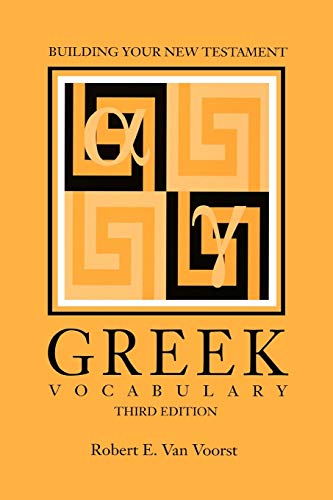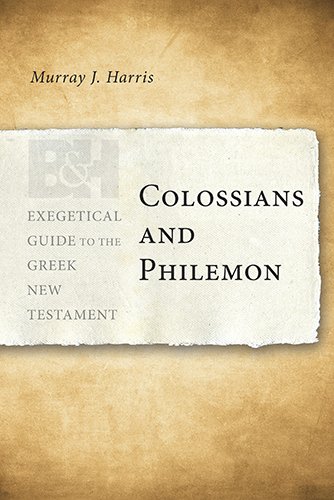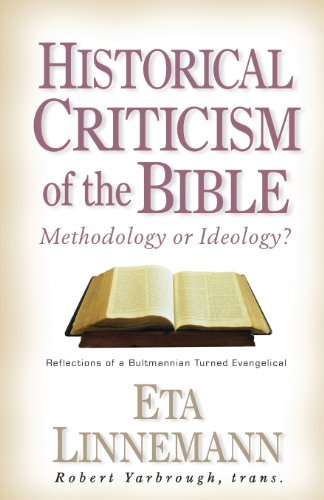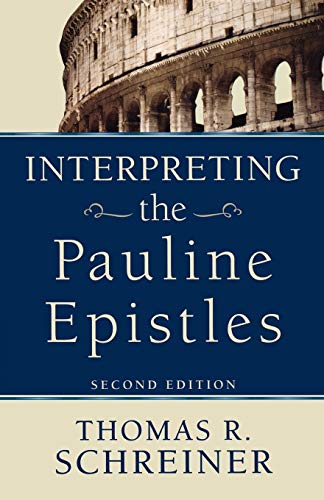Man and Woman in Christian Perspective
Written by Werner Neuer Reviewed By Mary E. BarrAt first sight this book promises to be useful to anyone concerned to think through, from a Christian perspective, the issues raised by current trends affecting the place of men and women in society. The precis on the back cover leads the reader to expect a balanced, critical and pastorally sensitive handling of a thorny topic. Gordon Wenham, in his translator’s Preface, commends this book as ‘a compact, readable, yet scholarly, treatment of the biblical texts relating to sexuality’ (p. 10). Many readers will be disappointed.
Amongst the aims of his study, Dr Neuer includes an analysis of ‘the issues raised by feminists both inside and outside the church’ (p. 12). In fact, the vast diversity of feminist literature is dismissed in less than two sides of hostile comment; very little effort is made to assess the validity of different so-called feminist concerns (action against the prohibition of abortion is brushed aside in the same breath as protest against rape, p. 18); and a ‘Christian feminist theology’ is declared simply ‘impossible’ (p. 160).
The author also promises a presentation of what human and social sciences know about gender differences. Again, the result is one-sided and predetermined by the intention of illustrating that men and women are fundamentally different in nature and therefore have different tasks. We are told that, whereas fatherhood involves the fleeting physical contribution of man in sexual intercourse, ‘motherhood’ is ‘woman’s destiny’ (p. 35)—a ‘lengthy’ and ‘comprehensive’ role, ‘arranging what the man has acquired for her or she has received from him’. While woman is created for more passive, receptive roles, man is equipped for ‘remodelling his environment’ (p. 38), for leadership and exercise of authority in marriage, family, society and church (p. 55). There is little recognition of the widespread acknowledgment of the crucial role of fatherhood in the shared task of parenting. Nor is there any admission of the fact that a world in which men have had almost unlimited scope for ‘mastering the environment’ is now known to be far from healthy.
As Neuer outlines the main purpose of his study, it is ‘to consider completely afresh the biblical view of male and female and to attempt by paying careful attention to Scripture to discover what is God’s will for man and woman in the present’ (p. 11). Those who have not read much on this subject may find something fresh in this book, and certainly Neuer presents his interpretations clearly and comprehensively. However, there is now such a wealth of literature available on the topic of biblical teaching about the nature and roles of the sexes, that many will question the value of the publication in English of yet another book which covers old ground and does so rather superficially.
We are told by the translator that Dr Neuer specializes in systematic theology rather than biblical exegesis. This might account for the unfortunate fact that his interpretations of OT and NT material contain some inaccurate or misleading remarks. For example, he claims that, in Genesis 2:19–20, ‘it is no coincidence that Adam, not Eve, is entrusted with naming the animal kingdom’, because naming was an exercise of sovereignty which God intended man, not woman, to wield (p. 71). When this claim is tested against the rest of Scripture, it is shown to be erroneous; of the several references to the naming of children in the OT, the mother exercised this right in more than half the instances. Strangely, Neuer himself later admits this fact (p. 83), which undermines the case which he tries to build on the Genesis narrative.
Again, he cites the reference in Genesis 2:18 to woman being created as a ‘helper’ for man—and it is clear that he sees her as a complementary but subordinate figure, supporting man in his ‘headship’ role as his ‘helpmeet’, the modest wife and mother of his children, ‘who accompanies his public activity with quiet peaceableness’ (p. 134, cf. pp. 69, 147). Neuer seems to have overlooked the fact that the Hebrew word used for ‘helper’ in Genesis 2:18 does not, in fact, denote a ‘subordinate assistant’: of its twenty-one appearances in the OT, fifteen refer to God as ‘helper’ to humanity (e.g. Ex. 18:4; Dt. 33:7; Ps. 33:20), which precludes an interpretation of the word as an assistant of ‘back-room’, subordinate status.
Moving on to the NT, his exegesis of passages like 1 Corinthians 11:3–16 does not do justice to the intricacies of the text acknowledged by well-informed commentators. His suggestion that this passage deals only with women praying and prophesying in small house groups, not with the ‘public worship’ of the church (p. 118), creates a dichotomy which is out of place within what we know of the circumstances of primitive Christianity. Also contributing to a distorted picture of the place of women in the early church is his description of Phoebe as a ‘deaconess’, and his failure to highlight such texts as Philippians 4:3, where St Paul greets women as his ‘fellow-workers’ in the gospel.
Overall, many will find frustrating the narrow conservatism which leads Neuer, for instance, to synthesize the Genesis creation narratives, and to attempt to find a single, harmonized view of woman’s role uniting the different NT writings. He continually refers to ‘the biblical view’ of the sexes—as if there is one straightforward, monochrome picture of the natures and functions of men and women running throughout Scripture. He writes about the organization of ‘the early church’—as if there was one uniform pattern of church order put neatly into place in the entire nascent church, not taking into account the rich diversity and differing patterns of ministry which the NT itself reflects.
Perhaps the most worrying section of Neuer’s study is that in which he purports to find the basis for his views about man and woman within ‘the nature of God as it is disclosed in the biblical revelation’ (pp. 152ff.). He states categorically that biblical descriptions of God as father and bridegroom show ‘that the masculine terminology of the Bible is based on the nature of God, whereas feminine terms are unsuited to designating the divine nature’ (p. 158). He says that the ascription of motherhood to God ‘introduces ideas into the concept of God that are completely foreign to his nature’; it is a modern feminist fad which must be rejected (pp. 155, 19). Such a cursory dismissal betrays a sad ignorance of the rich vein of spirituality running throughout church history—from Clement of Alexandria to the Greek Orthodox theologian Gregory Palamas, from Anselm of Canterbury to Julian of Norwich—which uses female pictures and speaks in feminine terms of all three Persons of the Trinity.
Neuer maintains that God cannot be termed ‘mother’ because ‘the basic maternal functions of conception, pregnancy and birth, which are essentially passive in character, may not be ascribed to God without injuring his divinity’ (p. 161). By contrast, many reputable biblical scholars agree that there is significant feminine divine imagery in Scripture—for example, God as a pregnant woman with birth pangs, Isaiah 42:14; God as a comforting mother, Isaiah 66:13; Jesus as a mother hen with her little ones, Luke 13:34. With incredible insensitivity, both to the meaning of the text and to the nature of motherhood, Neuer dismisses such verses: ‘these maternal features in God are parts of his paternal love.… The motherly side of God … is of course part of his fatherliness’ (pp. 156, 161). This insistence on the maleness of God rings theological alarm bells, since it ascribes sexuality to God. Most theologians would want to say that this is a reversion to paganism. In the Scriptures, rightly interpreted, sexuality belongs to creaturely existence, and the question of God’s sexual differentiation is totally out of place, for the Creator embraces but transcends all maleness and femaleness.
Yet this is not the only alarming aspect of Neuer’s view; for if God is male, then male is God. Indeed, Neuer states that ‘the masculine-shaped picture of God in Scripture has a necessary consequence that man in his maleness is in a special way the reflection and representative of God …’ (p. 158). ‘The man may be said to reflect God or Christ more completely than the woman does, whereas she more clearly portrays creation and the church …’ (p. 160). According to Neuer, it follows from this that leadership in society and, especially, in the church must be exercised by men; women who preach and teach where men are present are usurping men’s rightful authority as God’s representatives, and women ‘priests’ are an anathema (pp. 172ff.). Christian women should shun active leadership roles and instead aspire to follow the example of Mary’s passive faith which consists completely in ‘receiving, in letting happen what God is doing within her’ (p. 171). Not only does such a dictate neglect the important fact that men as well as women need to have both active and passive elements within their faith, it also denies the work of the Holy Spirit. Countless churches the world over bear witness to the ways in which the Spirit has empowered women as well as men for active ministry, glorifying God and edifying believers.
In sum, the argument of this book depends upon the ‘equal but different’ theory. In other words, Neuer believes that it is possible to affirm the goodness of sexuality, including female sexuality, and to affirm the equality of men and women, whilst at the same time insisting on strict differentiation of their respective natures and roles. In order to defend this theory, he has to say that those passages in Scripture which seem to proclaim the abolition of discriminatory values and roles built upon sexual distinctions actually have another meaning. Thus he contends that Galatians 3:27–28 refers only to racial, social and sexual differences ‘before God (that is in respect of salvation)’ (p. 109); such verses do not really have practical consequences for the roles of human beings on this earth. This interpretation, which assumes dichotomy between social order and life Coram Deo, is not new. It has long been used to give biblical justification to, for example, the continuance of slavery and the perpetuation of apartheid, as well as the refusal of emancipation for women. It is tragic to see a Christian writer reiterating this theory which reduces to an impractical pietism St Paul’s passionate advocacy of the freedom which Christ offers.
In fact, history reveals that this theory does not work out in practice. Neuer admits that throughout church history there have been repeated denials of the equality of men and women and of the goodness of sexuality, especially female sexuality; however, the insistence on the strict differentiation of the nature and role of the sexes has remained, generally, uncontested. Only in the twentieth century, says Neuer, have the differences between the sexes—and their consequent differentiation of tasks within church and society—been rejected, evidenced by such sinful phenomena as ‘women priests’ and ‘working mothers’. The fact that this is also the time in which church and society have begun to reaffirm sexuality and the equality of the sexes both speaks for itself and reveals the fallacy behind Neuer’s argument.
Mary E. Barr
Cambridge







